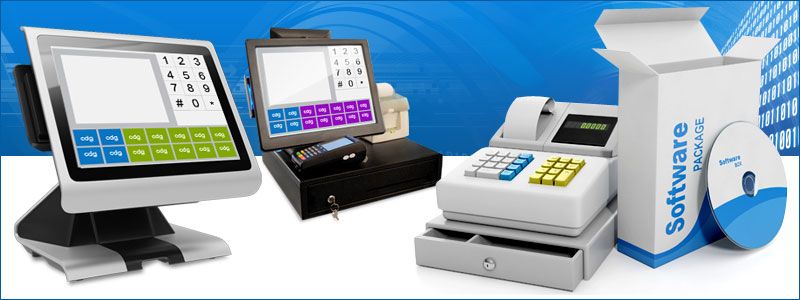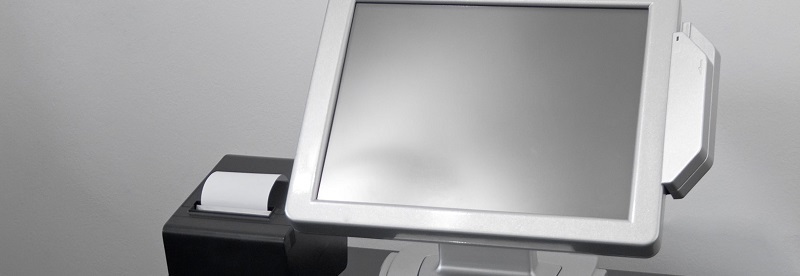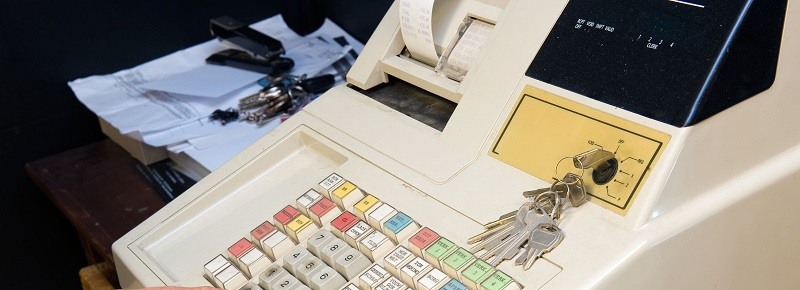
CASH REGISTER
Compare & Save up to 30%!
in under 1-Min!

Fast and effective
After posting my request, I was contacted within hours by a COMPANEO advisor to be sure of the content of the request. The same day two suppliers contacted me and the following days two more. Very efficient in obtaining quotes.
A service to know
Very good selection of companies. Speed and efficiency are there.
Simple and efficient
Good helpful service when time is short! Very good service which puts in touch with the providers of the services sought. When you are short of time, it allows you to be in touch quickly.
- Only 1 Form To Fill - No Need To Browse Around
- Only Receive Targeted Offers from Approved Suppliers
- Our Suppliers Will Compete To Win Your Business
A modern cash register, often referred to as an EPOS (Electronic Point of Sale) system in the UK, is crucial for businesses of all sizes. It's not just about processing transactions; it's about streamlining operations, enhancing customer experience, and gaining valuable business insights.
Importance of Modern Cash Registers
In the UK, EPOS systems have revolutionised the way businesses operate. They offer far more than just transaction processing. A well-chosen system can significantly improve efficiency, customer service, and business analytics.
Recent studies show that UK businesses using modern EPOS systems report an average 20% increase in operational efficiency. This translates to substantial time and cost savings, particularly for SMEs.
Did You Know?
In the UK, businesses that have switched to cloud-based EPOS systems save an average of 10 hours per week on administrative tasks. This allows staff to focus more on customer service and business growth.
Types of EPOS Systems
The UK market offers various types of EPOS systems. Each type caters to different business needs and budgets. Here are the most common types:
- Traditional POS Systems: Robust, suitable for high-volume businesses.
- Mobile POS Systems: Flexible, ideal for pop-ups and small retailers.
- Cloud-Based POS Systems: Offer real-time data access and automatic updates.
- Self-Service Kiosks: Increasingly popular in fast-food and retail sectors.
Interestingly, 65% of UK SMEs now prefer cloud-based EPOS systems due to their scalability and remote access features.
Key Features to Consider
When selecting an EPOS system for your UK business, consider these essential features:
- Inventory Management: Real-time stock tracking and automated reordering.
- Customer Relationship Management (CRM): Tools for loyalty programs and targeted marketing.
- Reporting and Analytics: Detailed insights into sales patterns and business performance.
- Integration Capabilities: Compatibility with accounting software and e-commerce platforms.
- Payment Processing: Support for various payment methods, including contactless and mobile payments.
UK businesses that utilise EPOS systems with advanced analytics report a 15% increase in average transaction value, highlighting the importance of data-driven decision making.
EPOS System Installation and Maintenance
Installing and maintaining an EPOS system in the UK requires careful planning and expert assistance. Here's what you need to know:
- Professional Installation: 80% of UK businesses opt for professional installation to ensure optimal setup.
- Staff Training: On average, UK businesses allocate 10 hours per employee for EPOS training.
- Regular Updates: Cloud-based systems often update automatically, saving time and ensuring compliance.
- Maintenance Contracts: 70% of UK SMEs choose maintenance contracts for ongoing support.
Proper installation and maintenance can extend the life of your EPOS system by up to 5 years, providing excellent return on investment.
Expert Tip
When choosing an EPOS provider in the UK, look for those offering 24/7 technical support. This ensures minimal disruption to your business operations, especially if you operate outside standard business hours.
Integrating EPOS with Other Business Systems
Modern EPOS systems in the UK offer extensive integration capabilities. Here are key integrations to consider:
- Accounting Software: 90% of UK businesses integrate their EPOS with accounting systems like Xero or QuickBooks.
- E-commerce Platforms: Essential for businesses with both physical and online presence.
- Supply Chain Management: Automates ordering and inventory processes.
- Customer Loyalty Programs: Enhances customer retention strategies.
Businesses that fully integrate their EPOS with other systems report a 30% increase in operational efficiency.
Cost Considerations for UK Businesses
The cost of EPOS systems in the UK varies widely. Here's a breakdown of potential expenses:
- Initial Hardware Costs: £500 - £2,000 per terminal.
- Software Licenses: £20 - £100 per month, per terminal.
- Installation and Training: typically 10-20% of the hardware cost.
- Maintenance and Support: Annual contracts range from £200 to £1,000.
While costs may seem high, UK businesses report an average ROI of 18 months for EPOS investments, making it a worthwhile consideration.
Security and Compliance in UK EPOS Systems
Security is paramount for UK businesses using EPOS systems. Here are key considerations:
- PCI DSS Compliance: Mandatory for all businesses processing card payments.
- Data Protection: EPOS systems must comply with GDPR regulations.
- Fraud Prevention: Advanced systems include features to detect and prevent fraudulent transactions.
- Regular Audits: 85% of UK businesses conduct quarterly security audits on their EPOS systems.
Implementing robust security measures can reduce the risk of data breaches by up to 70%, safeguarding both your business and customers.
Compliance Tip
Ensure your EPOS system is Making Tax Digital (MTD) compliant. This UK government initiative requires digital record-keeping and is essential for VAT-registered businesses.
Future Trends in UK EPOS Systems
The EPOS landscape in the UK is rapidly evolving. Here are some trends to watch:
- AI and Machine Learning: For predictive inventory management and personalised customer experiences.
- Mobile POS: Expected to grow by 30% in the UK retail sector by 2025.
- Contactless and Biometric Payments: Becoming increasingly prevalent, with 80% of UK consumers preferring contactless methods.
- IoT Integration: Connecting EPOS systems with other smart devices for enhanced operational efficiency.
Staying abreast of these trends can give UK businesses a competitive edge in an increasingly digital marketplace.
Conclusion
Choosing the right EPOS system is crucial for UK businesses looking to thrive in today's competitive market. By considering factors such as features, integration capabilities, security, and future trends, you can select a system that not only meets your current needs but also supports your business growth.
Remember, the initial investment in a quality EPOS system can lead to significant long-term benefits, including improved efficiency, better customer experiences, and valuable business insights. As the UK retail and hospitality landscapes continue to evolve, a robust EPOS system will be an invaluable tool for success.
These articles might interest you
-

Which ePos is right for a retailer?
Retailers are usually the first professionals coming to mind when thinking about electronic points of sale. In fact, this industry has always been an early-adapter of every new ePos technology. So it’s little wonder that specific development work has been performed to create a whole niche mark
-

ePos software, the real driving force of a succesful ePos system
An electronic point of sale will only ever be as good and productive as the software that is used to make the whole ePos system work. While the possibilities offered by ePos software seem limitless, the prospective buyer should take note of several points to watch, before he takes his pick among the
-

The changing landscape of ePos till system providers and models
The ePos till system market has suddenly become much more complex and diversified.New technological choices have made it possible for cashless system specialists to compete against established ePos pure players. But these new technologies have also allowed very well known b2c computer and electronic
-

Hardware and software components of an ePos system
There is so much more to an ePos system than the plain old whirring-and-ringing old cash register. Because payment methods have evolved, and in order to improve customer experience and operator comfort, new hardware has been added to the point of sale. And to make it fully electronic, software is no

